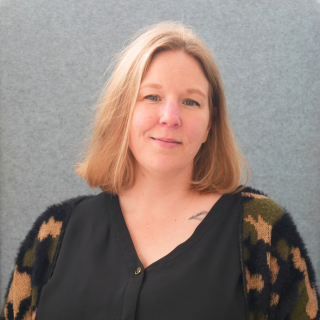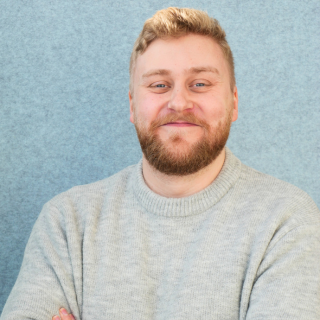BSc (Hons) Speech and Language Therapy
This popular course is ranked 3rd in England for student satisfaction in Speech and Language Therapy (Complete University Guide 2025) and we celebrate our 30th year of training the future SLT workforce in 2024-5.


Qualify as a Speech and Language Therapist
and support people with communication difficulties
Entry requirements
Three A-levels at grades BBB or above
Or BTEC triple grades DDM or above
Or Access 45 D/M with min 24D
Or T level M
And GCSE English Language with Maths and Science at grade 4 or grade C or above
UCAS points 120
UCAS code B620
UCAS institution code P63
Duration 3.5 years full-time or up to 7 years part-time.
Full entry requirements
Level 2
You will be expected to have GCSEs at Grade 4 or above (formerly Grade C) in five subjects, which must include English Language, Mathematics and a science.
Irish Leaving Certificate: Mathematics, English and a Science at ordinary level grade B3/O3 or higher.
Scottish qualifications: a minimum of five Intermediate Standard 2 or above, including English, Mathematics and a science.
We also require:
Level 3
BBB at A level (120 tariff points). Subjects such as English Language, Psychology, Biology (and other sciences), Modern Foreign Languages provide a good foundation for SLT. The Welsh Baccalaureate will be accepted in lieu of one A level. General Studies and Critical Thinking are not included.
OR BTEC national diploma in a related area (e.g. health studies or early years) at Distinction/Distinction/Merit.
OR Access to HE in a related area (e.g. Sciences or Health Professions) 45 level 3 credits D/M with minimum 24 D. Modules should include Biology and Psychology.
OR CACHE Health and Social Care qualification at Grade B.
OR Irish Leaving Certificate: a minimum of 5 Highers at Grade B2/H3 including a science or social science.
OR 5 grades at A or B from a combination of Scottish Highers and Advanced Highers.
OR Degree/foundation degree.
OR International Baccalaureate 28-30. Individual offers will vary depending on subjects studied.
In line with HCPC requirements, applicants who do not have English as their first language or who have not received their education through the medium of English, must achieve an IELTS score of 8 with no element below 7.5 at the start of the programme. This is in addition to the Level 2 English Language requirement.
An interview, occupational health check and DBS check are also required.
Course Summary
From September 2025, our BSc programme will increase from 3 years to 3.5 years (3 years and 1 semester, subject to validation) with students completing their programme at the end of January in their fourth year of study. Here at Marjon, we have successfully delivered both 3 and 3.5-year programmes over our 30-year history and are excited to be able to offer a new longer degree programme again.
Speech and language therapists (SLTs) enjoy rewarding, specialist careers working directly and indirectly (e.g. thorough research) with individuals and their families, teachers, carers, nurses, doctors and other allied health professionals. SLTs may work in a variety of settings including hospitals, schools, the community and people’s own homes as well as specialist centres. Almost one in five people will experience communication difficulties at some point in their lives and SLTs are key professionals involved in supporting effective communication in all its forms. SLTs are also core members of multi-professional teams supporting children and adults who have eating, drinking and swallowing difficulties (dysphagia). The emphasis for all clinical work is to allow people to participate in their lives as safely and fully as possible.
In your training at Marjon, you will develop core and advanced knowledge and skills in topics such as linguistics, phonetics, bioscience, psychology, research methodologies and speech and language pathologies. You will also develop your clinical and professional skills through workplace and simulated placements and modules that allow you to explore and develop your wider professional skills.
Successful completion of our Health and Care Professions Council (HCPC) approved programme (subject to validation) makes graduates eligible to apply for registration with the HCPC. Speech and language therapist and speech therapist are protected titles in the UK and their use requires registration with the HCPC. Please be aware that having a disability should not be a barrier to becoming HCPC registered and refer to their advice on disability and becoming a health and care professional.
A training grant of at least £5000 per year is available to eligible students on pre-registration SLT courses.
We offer a successful flexible part-time route to qualification at Marjon in which students can adapt their study route across the programme in response to their personal circumstances. Part-time SLT students will study half of the module credits per year compared to full-time students, undertaking placements (which can be completed full or part-time) in years 2, 4, 6 and 7. Please contact us for more information if you are interested in starting your SLT degree part-time.
The SLT academic year may extend beyond the standard university year at times to enable students to complete all required elements. Students will be notified of this where applicable.
From September 2025, students will experience studying and working alongside other Allied Health students and professionals in our brand new Health and Wellbeing Hub on campus, offering specialist and integrated clinical services to members of the public.
Why this course at Marjon?
In September 2025, we will be moving into our first-class Health & Wellbeing Hub on campus.
Our on-site clinic facilities provide SLT services to the local community and placement capacity for our students.
Learning, teaching, research and service provision are enhanced by our team of specialist practitioners and academics and access to cutting-edge resources including ultrasound technology and our dysphagia kitchen.
You will graduate having achieved the RCSLT Pre-registration Eating, Drinking and Swallowing competencies. We have a long and successful history of supporting students to reach equivalent standards at Marjon.
Marjon is currently the only undergraduate pre-registration, direct-entry SLT programme in the Southwest, and our 30-year history of close partnerships with SLT services means you'll learn from the experts!
Clinical simulation for teaching and placements, using specially purchased software and trained actors to help students gain vital therapeutic skills & experience.
Modules for this course
Course Snapshot
“ The first year was about learning the basic skills a speech and language therapist should have. It covered linguistics, phonology and the anatomy of speech. The second year involved taking the skills we had learnt in first year and applying them to clinical practice. We built up knowledge of assessment and therapy techniques and learnt how to use them with people. In our third year we are looking at the specific details of some complex conditions and learning how to create full intervention plans for someone with communication difficulties.”
1st Year
Professional knowledge and skills 1
Bioscience for SLT
Introduction to linguistics
Phonetics and phonology
Human development
2nd Year
Professional knowledge and skills 2
Clinical linguistics and phonetics
Acquired communication disorders 1
Developmental communication disorders 1
Dysphagia and Voice
3rd Year
Professional knowledge and skills 3
Acquired communication disorders 3
Developmental communication disorders 2
Acquired communication disorders 2
Clinical research project
Research methods
4th Year
Professional knowledge and skills 4
Clinical research project
Leadership for SLT
This course is perfect if you’re curious about
How we communicate as children and as adults
How speech and language shape our identities and interactions
How eating, drinking and swallowing work
How to work with those experiencing communication and/or eating and drinking differences and/or difficulties
How to work as part of a team around an individual to maximise their opportunities and success
What it is like to belong to an evolving, evidence-based profession
“ We interviewed yesterday and there were two current Marjon Year 4 students that we met, I wanted to let you know how well they performed. They were ranked first and second in the process and were both a huge compliment to the training they have received. I was particularly impressed with the level of dysphagia competence they were able to describe and demonstrate. Their competence was robust and credible. It really shone out compared to other institutions.”
Ask a student
See where our graduates are now
May Mander
“I had some fantastic placements whilst being a student. I think it was vital to start placements early on in the course as it enables you to link theory to practice straight away. Our lecturers were very passionate, which was inspiring. I really enjoy working with such a wide variety of clients and I work in a supportive team who have taught me so much. My favourite thing about this profession is being able to see how the work we do makes a positive difference in someone’s life.”
May is an SLT for Northern Devon Healthcare NHS Trust.
Jack Griffiths
"SLT is about having a key interest in communication and wanting to help people. I really like the placements, all have been excellent in giving me opportunities to apply what I’ve learnt to real clients, each one has been a boost to my confidence. I can go forward, knowing what I’m good at and where I need to put in that bit more work. Plus the lecturers have been absolutely fantastic."
Jack is now an SLT for the NHS in Hertfordshire.
Hayley Groves
“I really enjoyed the small year group we had, it gave us the chance to really get to know one another and to challenge and support each other. Our lectures were informative and engaging and complimented by valuable real-world skills development including working with clients and with actors in role-playing days to develop our skills in a clinically simulated environment. The dysphagia strand of the course was very valuable and I'm convinced it led me to having the edge at job interviews.”
Hayley is an SLT for the NHS specialising in acute and rehabilitation services for adults with acquired disorders.
What might you become?
On completion you will able to apply to the Health and Care Professions Council for registration as a Speech and Language Therapist and, once registered, you will be able to apply for SLT jobs, for example in the NHS.
There is currently a high demand for qualified Speech and Language Therapists, and ITV recently spoke to Dr. Julia Stewart about this.
Accreditations

Royal College of Speech & Language Therapists (RCSLT)
RCSLT is the professional body for SLTs in the UK, it's accreditation of this course enables graduates to apply to Health and Care Professions Council for registration as a Speech and Language Therapist.

Health and Care Professions Council (HCPC)
HCPC register and set the standards for health professionals including SLTs, and they approve the courses which professionals must complete to register as a practitioner in their field.
How you’ll be taught and assessed?
How will you be taught?
Includes lectures, seminars, tutorials, practical workshops and placement experiences. As a professional training, the course is akin to being in a full time job.
How will you be assessed?
While traditional exams feature, you will have a range of assignments including online exams, essays, case files, oral presentations, posters, clinical exams, designing and producing SLT resources. You will also be assessed on your clinical competencies developed through placements.

Alex is a qualified speech and language therapist and academic and has been working as a lecturer at Plymouth Marjon University since 2009. Her clinical specialisms are communication and swallowing disorders associated with learning disabilities, mental health and stammering. Her current teaching role broadly includes professional knowledge and skills (year 2), lifelong disabilities, mental illness, stammering & developmental eating and drinking disorders. She is a professional tutor for Year 2 of the SLT programme, supporting students on placement.
Fees and funding
Fees UK students: £9,535 per annum
Fees for International students: £14,600 per annum
This fee covers your tuition and access to course-specific equipment and facilities, as well associated services including access to the library, study skills support, IT support, student support and wellbeing services and membership of the Student Union. There may be additional costs by course.
Additional costs:
Please see additional costs for SLT students.
Nursing and Allied Health Care Students are required to have had a full range of immunisations before undertaking clinical placement, unless medically exempt. Therefore, before you join us to start your studies, we ask that you ensure you have had the vaccinations listed below. You will be asked to show evidence of your vaccination status or immunity before being permitted to undertake any clinical placement activity.
- Hepatitis B (around £200)
- Chicken Pox (around £150)
- TB (around £200)
- MMR (around £100)
For queries regarding immunisations, contact Alex Mallinson, Programme Leader.
Funding available for this course
- Funding of at least £5000 per year is available to students on pre-registration SLT courses.
- Our Student Funding Advisors offer confidential and impartial advice about your funding options.
- For those with a previous degree, you may be eligible for NHS LSF to receive a second degree maintenance loan and tuition fee support from the Student Loans Company.
Second degree or career change?
Students who already have a degree and are planning to undertake the BSc (Hons) Speech & Language Therapy degree as a second degree can access a second student loan through the student loans system. For further information see the Student Finance England website.
Learn moreLecturers
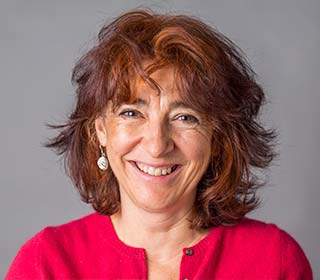
Sally is a dual trained phonetician and speech and language therapist with a clinical specialism in developmental speech and language disorders. She teaches clinical linguistics and phonetics, psycholinguistics and developmental speech and language disorders.
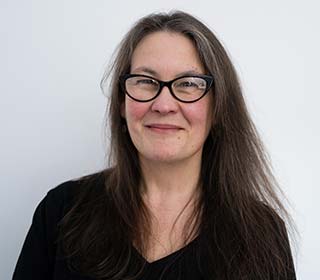
Jane is a speech and language therapist with a clinical background in paediatrics. She lectures in biosciences for SLTs; speech, language and communication development and disorders. She works with SLT placement providers to ensure the quality of our SLT placements.
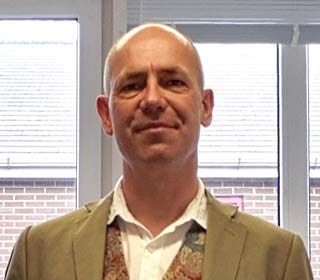
Steve's background is in language, linguistics and human communication. He has particular interests in TESOL, Second Language Acquisition, as well as language diversity, variation and change.

Sarah is a dual-qualified teacher and speech and language therapist with a clinical background in adults and paediatrics. She lectures in adult acquired communication disorders, brain and behaviour and Augmentative and Alternative Communication (AAC). Sarah has a range of clinical interests, particularly working with adults with motor speech disorders.
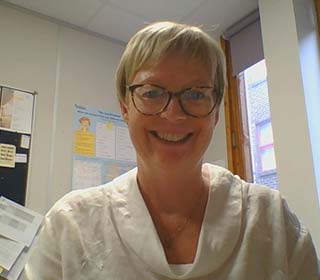
Julia is a senior academic who is an experienced speech and language therapist. She has extensive experience of working with children with a range of disorders and has worked with children of all ages. Her clinical experience includes work in a trailblazer Sure Start Project; in specialist provision for children with developmental language disorders and in community clinics.
More information
Personal Statement
We look for a well-written personal statement showing a good understanding of a Speech & Language Therapist’s role. It’s important to explain the reasons for choosing SLT as a profession. Visiting the Royal College of Speech and Language Therapists (RCSLT) website is a good place to start. We also look for people who have some experience (e.g. voluntary) working with people who have communication difficulties. It’s difficult to get this kind of experience with the NHS, however, there are a number of organisations with local branches, that may welcome volunteers e.g. Connect, Headway, Stroke Association, Parkinson’s UK, National Autistic Society, Afasic and Sense.
We look at an applicant’s whole profile when making a decision about whether to invite them for an interview so do contact us if you are unsure about your qualifications and/or experience. We want you to succeed so if you have any queries please email admissions@marjon.ac.uk.
SLT Student Conference
We run an annual SLT Student Conference to showcase our students' research achievements which is attended by students as well as our SLT graduates and clinical colleagues.
Each year of the programme includes a clinical placement. These take place in a wide range of settings and areas eg hospitals, schools, and clinics. During placement, you will be supervised by a SLT who will help you integrate the theory you have learned at university with practical work with clients. The final semester of the programme includes a long placement during which you will be fully immersed in your clinical practice. This provides a very successful bridge into practice as a new graduate as evidenced by the following feedback on our students:
“We had the pleasure of interviewing some of your final year students for a post with our service this week. We were very impressed with the quality of these students – their answers to the interview questions were reasoned, thoughtful and evidence-based, demonstrating an excellent breadth and depth of knowledge. They also demonstrated great professional standards and should be very proud of how they came across at interview.”
Debbie White, Speech & Language Therapy Team Leader, Livewell South West
Find out more about studying BSc (Hons) Speech and Language Therapy at Marjon

Discover Uni collects data about university courses in the UK. All universities publish Discover Uni data on their online course pages enabling you to compare similar courses at different universities.



